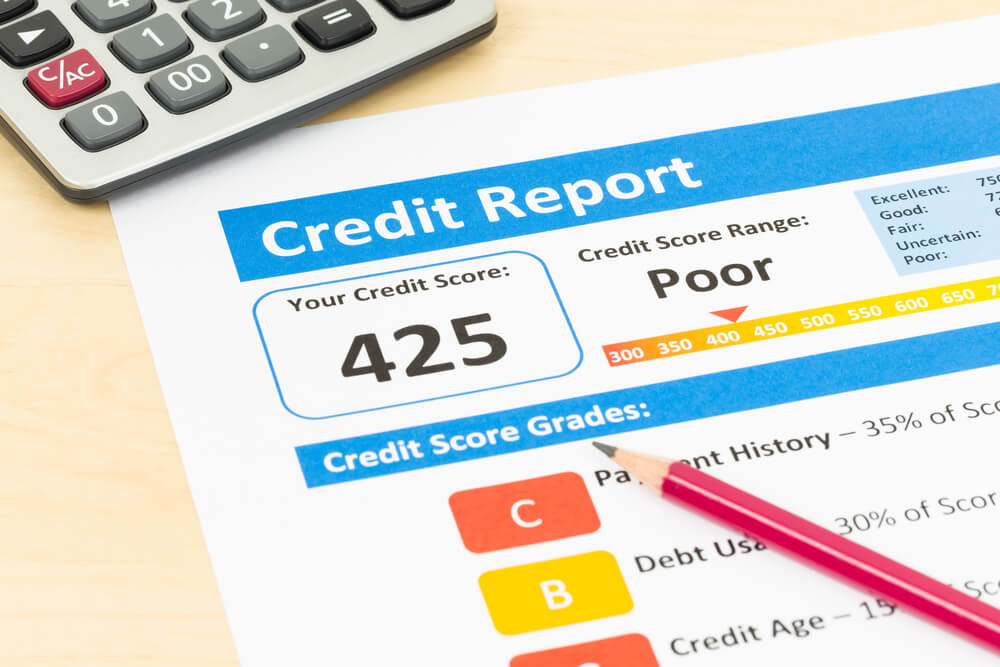Are you dreaming of owning a home? A place to call your own? Buying a home is one of life’s biggest milestones, a mix of excitement, anticipation, and, let’s face it, a few apprehensions along the way. The perfect neighbourhood, the ideal layout, and the amenities offered are all within reach, yet one thing that can make or break the journey is your credit score to buy a house. For many hopeful homeowners, credit can seem like a hurdle out of their hands, but it doesn’t have to be. Instead, think of your credit score as a powerful tool, one you can shape and use to your advantage.
Why is it so important? A good credit score to buy a house is like a golden ticket to homeownership. Lenders use it to gauge your reliability, affecting everything from the interest rate you are offered to the types of loans available. A high score can save you thousands over the life of a mortgage, while a lower one might limit your options or lead to higher monthly payments. The stakes are high, but with the right steps, you can improve your score and open the door to a better home-buying experience.
Before entering the housing market, we will cover everything you need to know about improving and boosting your credit score to buy a house. Whether starting from scratch or looking to polish a solid score, you will find clear, actionable steps to give your credit the edge it needs. From paying down debts and avoiding common pitfalls to understanding what lenders look for, every tip here ensures you confidently walk into the home-buying process.
Understanding Credit Scores in Canada

Understanding credit score to buy a house in Canada is essential for managing your financial health, especially regarding loans, credit cards, and mortgages. In Canada, credit scores range from 300 to 900, with higher scores indicating better creditworthiness. Two major credit bureaus in Canada—Equifax and TransUnion—calculate credit scores based on factors like payment history, credit utilisation, length of credit history, types of credit used, and recent credit inquiries. Payment history is the most important factor, making up about 35% of the score. This means timely payments on credit cards, loans, and other debts are important for maintaining or improving your score.
Building or improving a credit score to buy a house in Canada involves consistent, responsible financial habits. Paying bills on time, keeping credit balances low, avoiding frequent credit applications, and using a mix of credit types can all help boost your score. Monitoring your score regularly through a credit report can also help you catch any errors or fraudulent activity that might impact your score. In Canada, understanding your credit score to buy a house and taking steps to improve it can open doors to better financial opportunities, especially if you are aiming for major purchases, such as a car or home.
Smart Ways to Improve Your Credit Score
Improving your credit score can feel overwhelming, but you can start seeing positive changes with a few smart moves. From timely payments to mindful credit usage, here are effective strategies to help you boost your credit score and improve your financial standing.
Review Your Credit Report for Accuracy
The first step in improving your credit score is thoroughly examining your credit report for errors. Mistakes, such as accounts you do not recognise or inaccurately reported late payments, can impact your score negatively. You can see a quick improvement by identifying and disputing these inaccuracies with the credit bureau. Regularly reviewing your report helps correct errors and allows you to monitor for signs of fraud, ensuring your financial health stays on track.
Cut Down Outstanding Balances for Better Credit

Maintaining a credit utility ratio below 30% of your total available credit indicates to lenders that you handle debt wisely. A lower ratio suggests responsible credit management, which can positively influence your credit score. Trying to pay off your balance in full each month or significantly reducing it whenever possible is an effective strategy to improve your score. Not only does this improve your financial profile, but it also sets you up for better loan and credit opportunities in the future, as lenders view low utilisation favourably.
Improve Your Credit with Timely Payments
Payment history accounts for 35% of your credit score, making it one of the most crucial factors in your credit profile. A missed payment can negatively impact your score, potentially affecting your ability to secure favourable credit terms. To avoid this, consider setting up automatic payments to help you stay consistent with due dates. Automatic payments prevent accidental oversights and build a solid, positive credit history over time, strengthening your overall financial standing.
Limit New Credit Accounts
Each time you open a new credit account, a hard inquiry is recorded on your credit report, which can cause a temporary dip in your score. These inquiries signal to lenders that you are looking for additional credit, which may raise concerns about your financial stability. To keep your credit profile as strong as possible, it is wise to hold off on applying for new loans or credit cards, especially if you plan a major financial move like a mortgage application.
Leverage Older Accounts for a Positive Credit Score
Closing older credit accounts can reduce the overall length of your credit history, potentially lowering your credit score. The length of your credit history is important in demonstrating stability to lenders and reflecting your long-term credit management. Keeping these accounts open contributes to a stronger credit profile even if you no longer actively use them. A well-established credit history, supported by older accounts, can improve your standing with lenders and help you secure favourable terms on future credit opportunities.
Build a Balanced Credit Mix for Long-Term Benefits
Lenders prefer to see a variety of credit accounts on your report, including types like credit cards, car loans, or student loans. Having a balanced credit mix demonstrates that you can handle different forms of debt responsibly, which helps boost your credibility as a borrower. This variety signals lenders that you can manage both revolving credits like credit cards and instalment loans like car or student loans. Over time, a diverse credit portfolio can positively influence your credit score by showcasing your financial stability and responsible credit usage.
Pay and Settle Debts to Improve Your Credit Score
If you have accounts in collections, clearing these debts can positively impact your credit score. Many creditors are open to negotiations and may even agree to remove the collection record from your credit report once payment is made. Arranging a “pay-for-delete” settlement where you pay off the debt in exchange for its removal can improve your credit score. This approach helps reduce outstanding indebtedness and cleans up your credit report, significantly impacting your overall credit health.
Improve Your Score with Authorised User Status
Being added as an authorised user on a credit card held by someone with a solid credit history can positively impact your credit report. When they make timely payments and maintain a low balance, their responsible credit behaviour is also reflected on your credit report. This method allows you to benefit from their positive credit history without opening a new credit line or accumulating additional debt. It is an effective strategy to build or improve your credit score, especially if you are working on establishing a strong financial profile.
Conclusion
A strong credit score not only opens the door to better mortgage offers but also saves you thousands of dollars in the long run. Each strategy, from becoming an authorised user to negotiating pay-offs for collections, contributes to a profile that lenders view positively. Remember, every timely payment, every debt reduced, and every wise financial decision brings you closer to achieving your homeownership goals. So, take the reins of your financial journey, make informed choices, and watch as your credit score transforms into the key that unlocks the door to your dream home. Your future self will thank you for the investment you make today.
You May Also Read :
|
Know The Soft Credit Check Canada |
|
|
What is Credit Unions in Canada |
|
|
Improve loan to value |
|
|
How HELOC Affect Credit Score |
Frequently Asked Questions (FAQs)
To quickly increase your credit score in Canada, focus on paying all bills on time, reducing credit card balances to keep your credit utilisation below 30%, and checking your credit report for errors to dispute inaccuracies.
In Canada, most lenders require a minimum credit score of 620 to qualify for a mortgage. However, a score of 680 or higher is recommended for the best rates and terms.
The highest credit score in Canada is 900. Equifax and TransUnion, the country’s two main credit bureaus, use a credit score range of 300 to 900, with higher scores indicating excellent creditworthiness.
Yes, a 700 credit score is generally considered good in Canada and is often sufficient to qualify for a mortgage. How can you increase your credit score quickly in Canada?
What minimum credit score is needed to buy a house in Canada?
What is the highest credit score in Canada?
Can you get a mortgage with a 700 credit score in Canada?



































